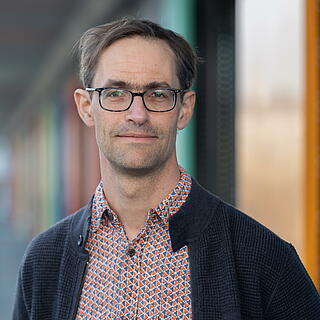Shaping international cooperation together with partners

© fstopimages/Malte Müller
Good cooperation in international projects is always about give and take. The Oeko-Institut has been working with partners and networks in Africa, Asia and Latin America for many years. However, this type of project involves much more than conventional forms of consultancy and science. In most cases, the Institute works closely with local partners who operate on a scientific and value-oriented basis, much like the Oeko-Institut itself, and have established good local networks. Problems and potential solutions are jointly analysed and discussed before being taken forward by stakeholders in the countries concerned.
How do international projects work? Which mutual interests are involved, and how has the nature of this cooperation changed over the years? In the new episode of the Oeko-Institut’s “Wenden bitte!!” podcast, Senior Researcher Andreas Manhart provides some answers.
The podcast audio is in German; an English translation of the exchange is here.
Exchanging experience creates a connection
In low- and middle-income countries, the tangible impacts of environmental pollution often pose a major problem, particularly in megacities. Air pollution and poor waste management are among the issues which affect people each and every day. For that reason, local partners actively seek opportunities for cooperation and shared problem-solving.
Air, water and soil pollution are topics which the environmental movement in Germany has kept in focus since the 1970s and have been successfully resolved in some cases. “In order to identify possible solutions, I often draw on older colleagues’ wealth of experience.”
Experience in Germany shows that addressing acute environmental problems also raises awareness of other topics such as climate change mitigation.
Conversely, we can often learn from other countries’ solutions, Andreas Manhart continues. In Ethiopia, for example, the taxation system grants very substantial privileges to electric cars, as opposed to combustion-engine vehicles.
Recurrent challenges
Another important aspect of cooperation with international partners is pursuing a joint objective. “We very much welcome it if clients allow for some degree of freedom in the project design, first to enable trust-building and then to allow decisions to be taken in line with local conditions,” says Andreas Manhart. “This opens up a shared pathway towards the goal.”
The collaboration with other countries started with an enquiry on e-waste in West Africa in the 2000s. On this basis, the Oeko-Institut has now established an extensive network of partners and developed broad expertise. Some questions come up again and again: managing and recycling spent batteries is just one example. “The key question in any project is always: ‘What is the biggest problem at the local level?’ That’s the starting point for ourselves and our partners to develop appropriate policy options,” Andreas Manhart explains.
Knowledge rather than everyday advice
The Oeko-Institut's podcast “Wenden bitte!” (“All change please!”) is aimed at listeners from politics, science, the media, NGOs and the general public – anyone with an interest in political and environmental issues. Co-presenters of the podcast are Nadine Kreutzer, journalist and presenter, and Mandy Schossig, Head of Public Relations & Communications at the Oeko-Institut. For about an hour – enough time for the “long haul of environmental podcasts” – they talk with one of the Oeko-Institut’s experts about upcoming transformations towards sustainability.
The “Wenden bitte!” (“All change please!”) podcast: Episodes of Season 4
All seasons and episodes are at www.oeko.de/podcast
The podcast is available on all the usual podcast portals – such as Apple Podcasts and Spotify





